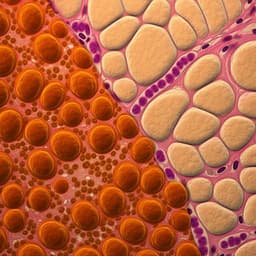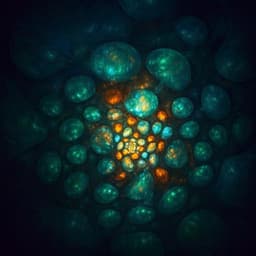
Medicine and Health
TANGO1 inhibitors reduce collagen secretion and limit tissue scarring
I. Raote, A. Rosendahl, et al.
Researchers including Ishier Raote and Ann-Helen Rosendahl have developed innovative membrane-permeant peptide inhibitors that target the TANGO1-cTAGE5 interaction, crucial for collagen export. This study uncovers promising strategies to modulate ECM hypersecretion, significantly reducing excessive scarring and fibrosis in zebrafish and human dermal cells.
~3 min • Beginner • English
Related Publications
Explore these studies to deepen your understanding of the subject.







